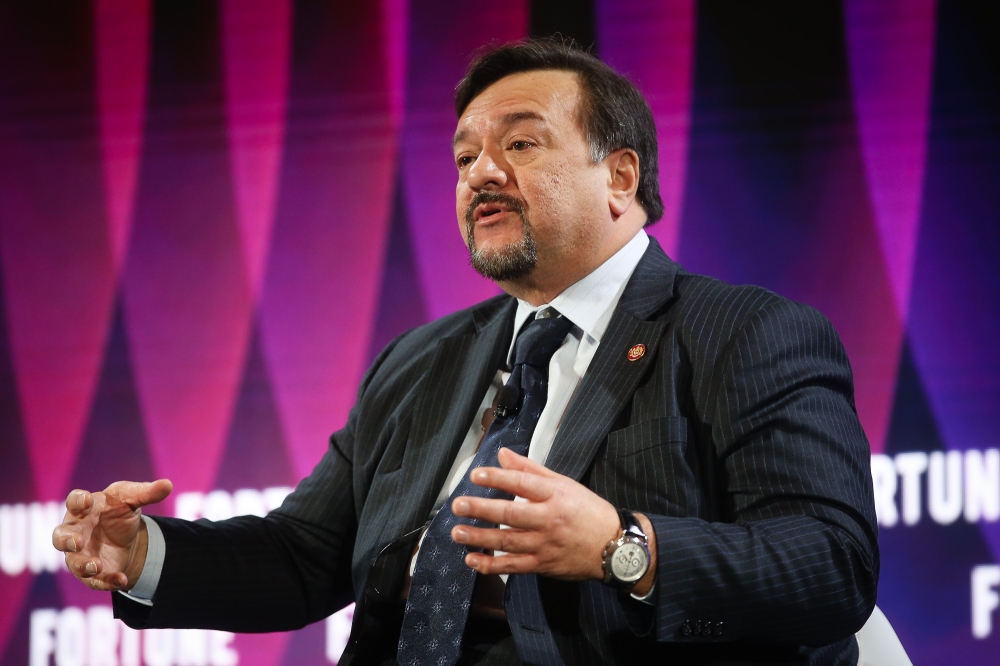KUALA LUMPUR, March 4 — Executives from some of the country’s biggest start-ups have welcomed Putrajaya’s recently-launched digital economy blueprint but with reservations about its goals and the timeline set to achieve them.
While the 10-year MyDigital plan will put the government on track to spur the high potential sector, they said the initiative appeared convoluted and lacked vigour in terms of what it sets out to achieve.
One of the underpinning criticisms was the programme’s timeline.
Jes Min Lua, founder of Recommend.my, the popular smartphone platform that provides property services like cleaning and moving, described it as “crawling towards the moon”, citing among others the lengthy period set just to review policies and laws.
“The first two years of Phase 1 (2021 and 2022) are mostly ‘reviewing policies and laws’ and ‘appointment of CDOs’ and ‘creating circulars’ and laying the foundation, where really it shouldn’t take two to three years to define these things,” she told Malay Mail, referring to chief digital officers.
The government said the plan’s initial stage will mostly focus on reviewing regulations and putting in place the right policies that will lay the bricks to pave the way more crucial aspects of the plan to be carried out in the next two phases.
The next phase will be dedicated to digitisation and widening connectivity. Among its key targets is the digitisation of up to 800,000 small and medium enterprises and schools.
Observers said while the target may be laudable, it seemed far-fetched since the effort would require massive resources.
“The targets are crazily hard to achieve or even measure ‘800,000 SMEs adopt digitalisation’, ‘each school student to have access to a digital device’, ‘all schools to be digitised’ and ‘all gig workers participate in GigUp’.
“How are we going to implement that so quickly, and how are we going to pay for all this?” she asked.
Prime Minister Tan Sri Muhyiddin Yassin said at the launch of MyDigital and the Digital Economy Blueprint that up to RM56 billion will be “invested” into the initiative by both the public and private sectors.
Half of it will be spent on bolstering infrastructures to widen connectivity and boost internet speed, crucial if the country is to see 5G network usable by the mid decade.
Minister in the Prime Minister Department (Economy) Datuk Seri Mustapa Muhammed said MyDigital will be the core thrust to make Malaysia a regional e-commerce powerhouse as well as a tech hub, with a target to nurture 5,000 startups and up to five “unicorn” companies.
In finance, the term unicorn is used for privately held companies with a valuation of more than US$1 billion (RM4.2 billion).
But these companies are rare with less than a thousand of them exist worldwide. Data from CB Insights, a company that tracks startups, showed only one out of ten companies have achieved unicorn status in the last decade, indicating a high chance of failure.
This fact has prompted local scepticism about MyDigital and the blueprint’s goals. Among the reasons cited are the country’s lack of focus on which market or areas it wants to excel in, and talent scarcity.
Muhyiddin said the government wants to nurture and develop up to 5,000 startups and 5 unicorns by the third phase.
“I think Malaysia really needs to figure out what we are especially good at, what are our differentiators as a nation, and where we will focus on to be a digital nation,” said Lua.
“We can’t afford to spray and pray, because we don’t have so much national reserves and honestly, we don’t have so much talent with the safety net to start startups. We need to define the focus, find a way to filter the best-quality startups with the largest economic multiplier and put funding and support them.”
Other industry players felt the blueprint should be more aggressive even as they noted the government’s commitment to help the sector boom.
Aaron Sarma, a former head of digital development at the Malaysian Digital Economy Corporation’s (MDEC), a government set-up entity that played an integral role in formulating MyDigital and the blueprint, said the initiative appeared to be aiming low, citing its productivity and connectivity targets.
“The blueprint states that it’ll take five years to have 100 household internet connectivity but we are already at 90.1 per cent today,” Sarma, now the general partner and co-founder at ScaleUp Malaysia said at the interview with the Malay Mail.
“Then they want the digital economy’s GDP contribution to account for 22.6 percent by 2025. But it was already 19.1 per cent in 2019... I think we have to do better,” he added, using the initials for gross domestic product.
Sarma also pointed to concerns about red tape potentially slowing progress.
There are six key areas of focus in the blueprint talent — developing talent, infrastructure, emerging technology, economy, society, and governance — with each cluster to be headed by six respective ministries and dozens more of government agencies.
“This is a big deal because the leader of the nation itself, the prime minister, is leading the direction of the digital economy, which shows how important this agenda is for the nation and how the digital economy is and it should be,” he said.
“But there are just too many people and agencies involved. Too bloated. I’m worried that it would make them less agile and move slowly to hinder progress.”
This has also raised concerns that private sector involvement would take a backseat even as their roles were outlined for each cluster, the former MDEC director noted.
“Through the efforts of governments past and present we now have successful entrepreneurs and businesses in the digital economy. There are ecosystem builders. There is talent in the market,” he said in a letter published on Digital News Asia.
“The government does not have to do this alone anymore. In the next 18 months, the public sector, in partnership with the private sector and academia can make a huge impact.”

















